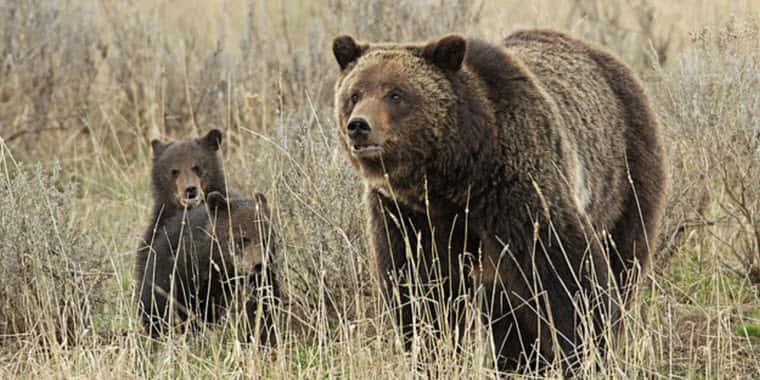By: U.S. Senator John Barrasso (R-WY)
America needs judges who uphold the law, not bend it to their personal views.
When activist judges weaponize laws and legislate from the bench, the people of Wyoming have suffered the consequences. There is no better example than the grizzly bear and the Endangered Species Act.
The Endangered Species Act has helped bring iconic species like the bald eagle back from the brink of extinction. The Act established a list of federally protected species with the express goal of seeing them fully recovered and eventually removed from the list.
The problem is that the Endangered Species Act is broken. Species languish on the list for decades and hardly any ever recover to the point of coming off. The federal government manages listed species. This sidelines state and local leaders who understand their environment best.
Activist judges have damaged the Endangered Species Act. Frivolous law suits from environmental groups tie up the delisting process for years and fully recovered species remain under Washington’s control. This results in growing populations of recovered but still listed species. These species often create conflict with local communities.
Here in Wyoming, the grizzly bear illustrates how much damage activist judges can cause. The grizzly bear is one of the greatest recovery successes under the Endangered Species Act. It is a conservation triumph led by the people of Wyoming, Montana, and Idaho.
In 1975, there were just 136 grizzly bears in the Greater Yellowstone Ecosystem. Today, that number has increased over fivefold and its range has expanded by 50 percent. These numbers easily surpass the recovery goals established for the bear.
The science is clear. The administrations of George W. Bush, Barack Obama, and Donald Trump have all issued rules to delist the grizzly bear in the Greater Yellowstone Ecosystem. Yet, the grizzly bear remains under overly restrictive federal control because activist judges are substituting their desired outcomes for the expertise of the biologists on the ground.
In 2009, 2011, 2018, and 2020, federal judges blocked the delisting, ignoring the best data available required by the Endangered Species Act.
In each case, these judges disregarded the conservation experts who have worked for decades to recover the grizzly population so it no longer requires the protections of the Endangered Species Act. Instead, these judges substituted their opinion for the work of the state and federal experts.
One U.S. District Judge in Montana based his decision on an environmental group’s claim that the availability of a particular food source for the grizzly bear was declining. The importance of that food source was later debunked in a scientific review.
Grizzly bears are predators. When their populations grow unmanaged, they come into conflict with local communities. The end results are livestock, pets, and tragically people have been killed.
Since 2007, when the bear should have been turned over to state management, grizzlies in the Greater Yellowstone Ecosystem came into conflict with humans over 3,600 times. Of those conflicts, close to 2,000 resulted in livestock loss. Almost 100 people were injured, including six who died from their wounds.
These attacks have taken a toll on Wyoming. In 2018, a hunting guide from Jackson Hole was killed by grizzlies.
He was an expert in protecting himself and the people he was guiding. It’s not just hunters who are at risk. Hikers, bicyclists, anglers, tourists, and wildlife biologists have all had bear encounters.
Altogether, eight different federal judges have overturned final rules to delist the grizzly bear from the Endangered Species List. Each of them was nominated by a Democrat president. Each of them substituted their own judgment overriding the law and the science.
We need judges at every level who will follow the law. Over the last four years under President Trump, the Republican Senate has confirmed 218 qualified judges who will do just that.
The 219th judge will be President Trump’s nominee to the Supreme Court, Amy Coney Barrett. She has stated, “A judge must apply the law as written. Judges are not policymakers, and they must be resolute in setting aside any policy views they might hold.”
In Wyoming, we have seen what happens when activist judges abuse the Endangered Species Act. The case of the grizzly bear shows us why we need more judges who uphold the law.
U.S. Sen. John Barrasso is chairman of the Senate Committee on Environment and Public Works.


